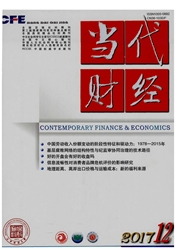

 中文摘要:
中文摘要:
从目前形势看,我国"十二五"时期节能减排的形势依然严峻。由于我国收入水平依然较低,随着收入水平的提高,我国总能耗、单位GDP能耗和二氧化碳排放量都将继续保持增长态势。因此,节能减排任重道远。目前,服务业竞争力不强、缺乏节能减排的核心技术、节能减排融资渠道有限、节能减排强制性措施过多和激励引导不足等因素制约着我国节能减排工作的深入。节能减排中,必须通过制造业内部的结构调整降低总能耗;通过进一步加强技术创新和推广的力度,提高能源利用效率;通过市场机制扩大节能减排的融资渠道,提高资金使用效果;通过考核机制改革,把目标考核的"刹车机制"转变为能效与减排的提升机制;通过完善税收和补贴制度体系,激励企业和个人主体做出有利于节能减排的选择。
 英文摘要:
英文摘要:
Judging from the current situation, China's energy conservation and emission reduction during the 12th Five-Year Plan period is still faced with severe challenges. Because China's income level is still rather low, with the increase of the income level, Chiua's total energy consumption, en- ergy consumption per unit of GDP and carbon dioxide emissions will continue to maintain the growth momentum. Therefore, China has a long way to go. Currently, the further development of China's en- ergy conservation and emission reduction is under the restriction of such factors as less competitive- ness in the service sector, lacking of core technologies, limited financing channels, excessive enforce- ment measures, and insufficient incentives. Hence, we should take the following measures: to reduce the total energy consumption through the internal restructuring of the manufacturing sector; to improve energy use efficiency through further strengthening of technological innovations and promotion; to improve capital use effects through the market mechanisms by expanding financing channels; to turn the "brake mechanism" of the objective assessment into the improving mechanism for energy conservation and emission reduction through the reform of the assessment mechanism; and to encourage enterprises and individuals to make choices in favor of energy conservation and emission reduction through the improvement of the systems of taxes and subsidies.
 同期刊论文项目
同期刊论文项目
 同项目期刊论文
同项目期刊论文
 期刊信息
期刊信息
